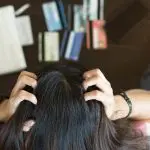Putting your loved one in a nursing home or assisted living facility is not easy, but you’re not alone. There are almost 2 million licensed beds at approximately 15,600 in nursing homes in the United States alone. Making the call to put a loved one in a home is tough, but one many of us have faced or will face it during our lifetime. So, when you place a loved one in one of these home’s care, you expect the best, but sometimes, that doesn’t always happen
In fact, The National Center on Elder Abuse shares that almost one third of all nursing homes were cited for violating federal laws and standards of care. That number is fairly daunting.
But, before we dive into what are the common six signs of abuse, first, let’s consider what the CDC, Centers for Disease Control and Prevention considers to be elder abuse and also, what the common types of elder abuse are:
- Abandonment—such as lack of care altogether
- Emotional Abuse—such as humiliation or removing an elder from socialization
- Financial Abuse—such as taking an elder’s identity or forging his or her signature
- Neglect—such as failure to give proper care or services that provide an elder freedom from pain or harm or, deprivation of food, water, etc.
- Physical Abuse—such as slapping, kicking, pinching, pushing, etc.
- Sexual Abuse—such as rape, sexual assault or battery, etc.

Here are the 6 common signs of elder abuse:
1. Dehydration or Malnutrition
If your loved one is being neglected, you might start to see him or her deteriorating. If you notice weight loss, dry lips, sudden weakness or reduced urination… your loved one may be experiencing neglect.
2. Behavior or Mood Changes
Another sign of elder abuse is changes in mood or behavior. Do you notice that your loved one is more anxious, agitated, angry, and depressed, or refuses to be touched or rocks back and forth? These could be signs that there is abuse happening at the nursing home. If you also notice your loved one wanting to be isolated or withdrawing more, or refusing to speak in front of any or all staff members, this should also be a huge red flag of concern for you that things may be very amiss at the nursing home.
3. Injuries and Bruises with No Explanation or Cause
While you shouldn’t panic at the sign of a bruise as it is common for the elderly to bruise, if you notice any bruises, tears or cuts, ask the staff for an explanation. If the explanation seems “off” or makes no sense, or these injuries appear repeatedly, then you should be concerned that your loved one may be being physically abused. You should also be mindful of any broken bones that appear. The explanation absolutely has to be reasonable. Always remember this.
4. Lack of Reports or Constant Illness
While it is absolutely common for an elder to get sick in the nursing home, constant sickness or lack of proper reporting and documentation of these illnesses are cause to believe there may be foul play or abuse involved.
5. Poor Hygiene
Do you notice that your loved one’s bed, room or clothes are soiled or dirty? Is your loved one dirty or appears to not have had a bath? Are the living quarters dirty or not taken care of? This is unacceptable and a big major sign of abuse.
6. Financial Changes
Exploiting the elderly is a common crime, sadly. If you notice unpaid bills or unusual purchases or subscriptions, you need to start asking questions.
What's Next?
If you suspect abuse, it’s time to contact an attorney who is experienced in elder abuse cases and elder laws. An experienced attorney can help investigate your case to protect your loved one and also, make sure your loved one gets the care and compensation he or she deserves! A lawyer can help you with issues regarding medical expenses, pain and suffering, relocation expenses and more. Don’t sit back quietly! If your loved one is being abused, contact an attorney to help you with your elder abuse case today.
















